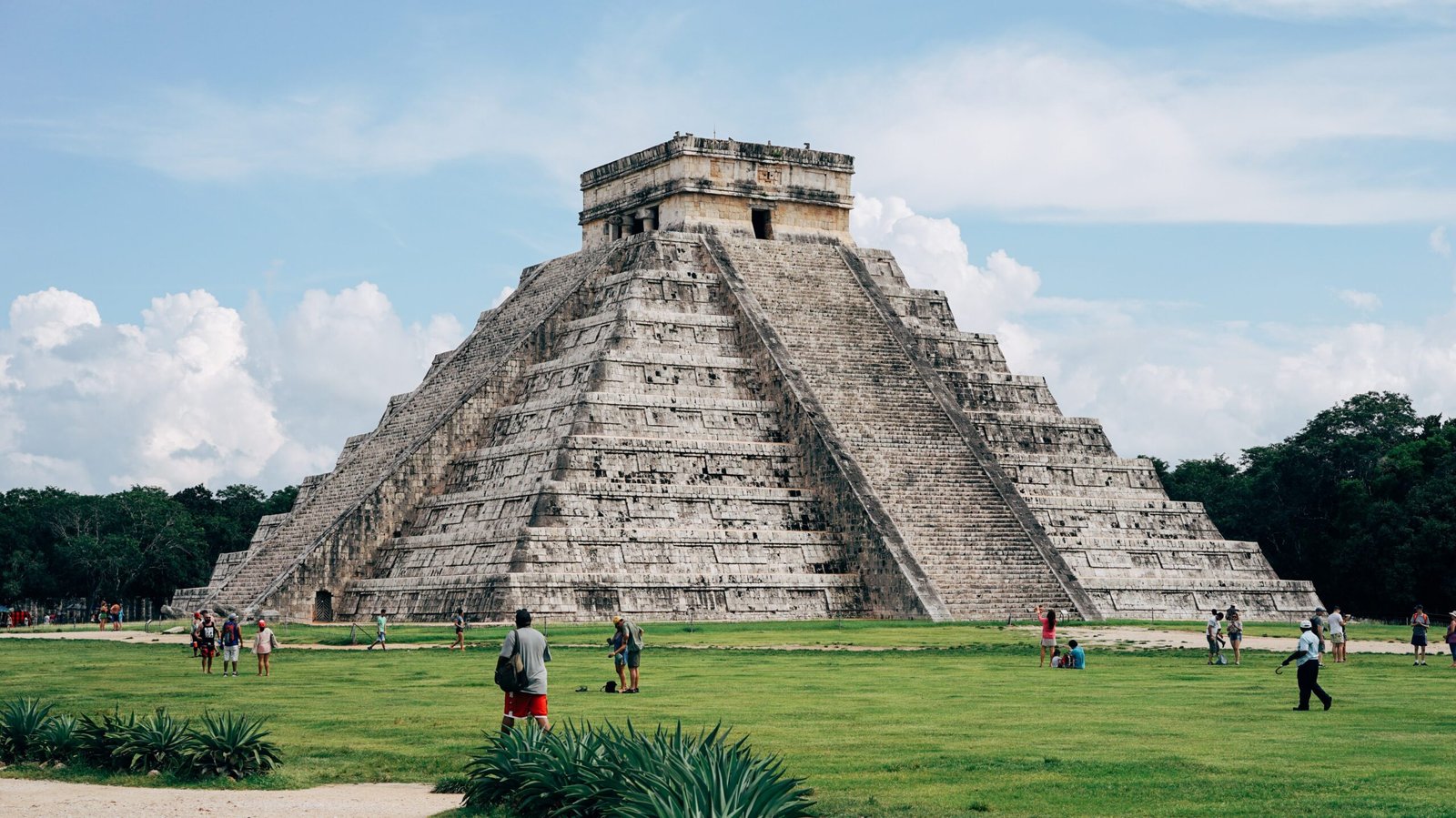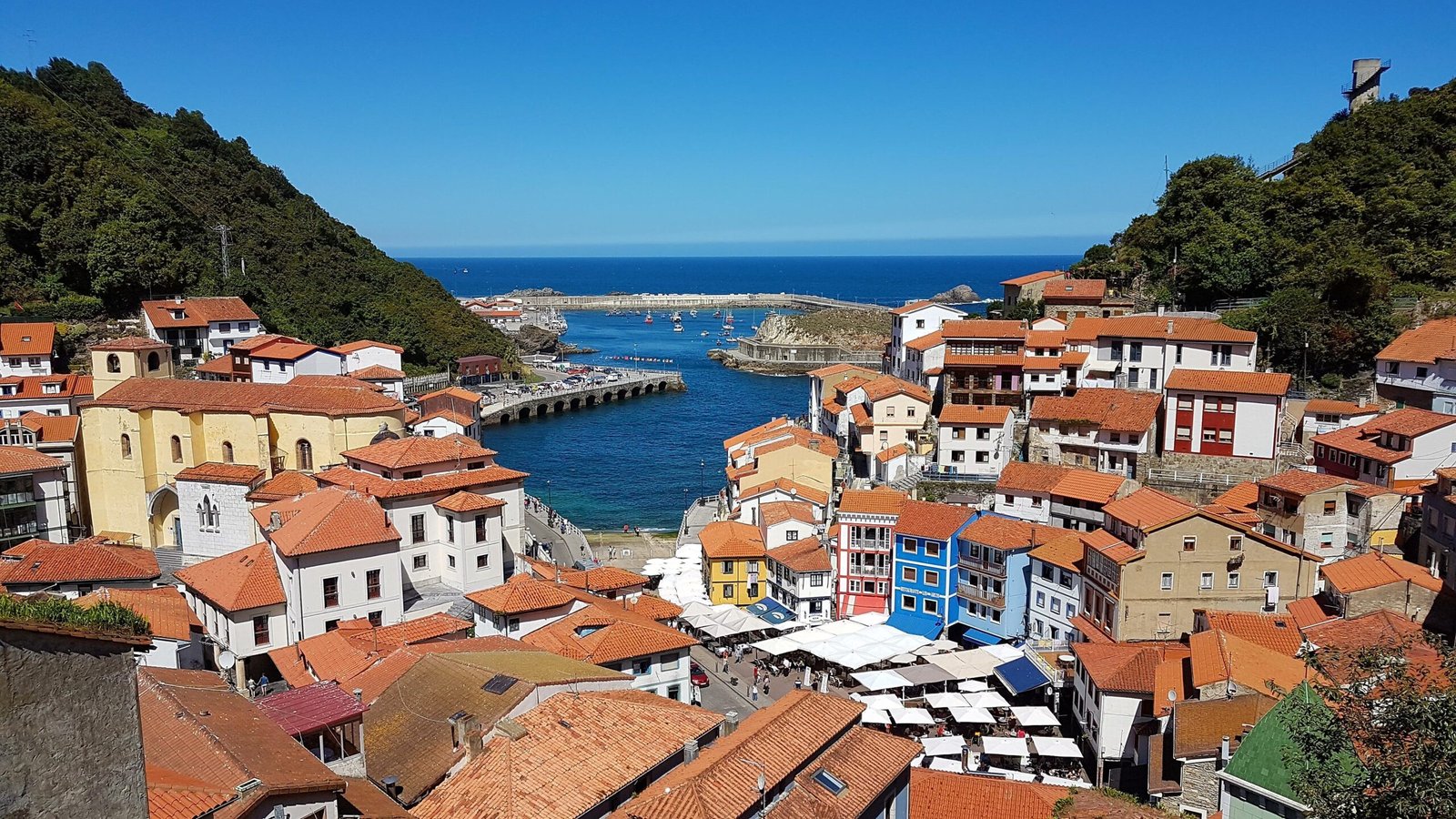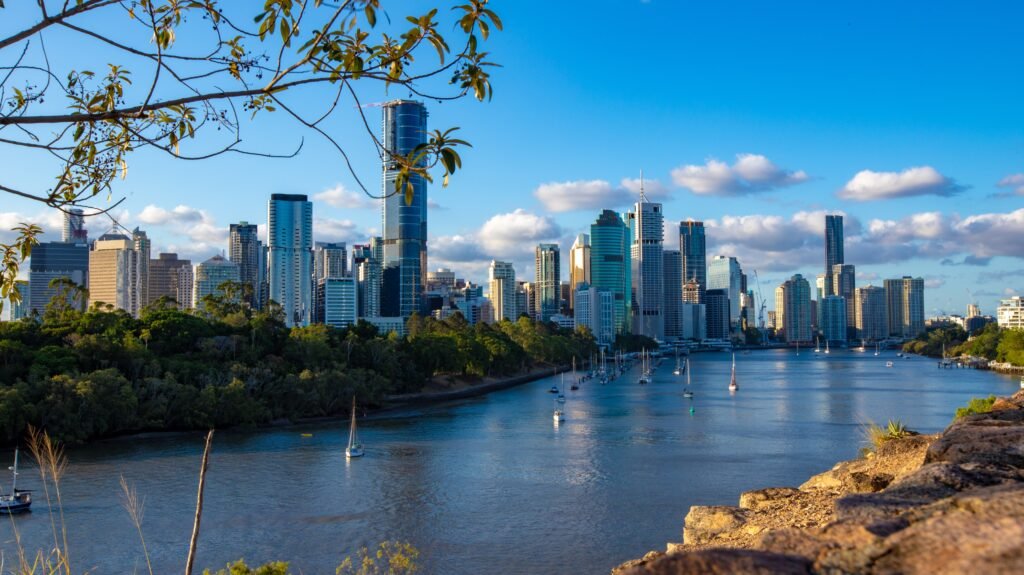Moving to a different country from the United States can be quite complex. It involves navigating through various legal requirements, such as visas and permits, as well as understanding cultural differences and adjusting to a new way of life. It’s essential to do thorough research, seek professional guidance when necessary, and be prepared for the challenges that may arise. Patience, flexibility, and an open mindset are key to a successful international relocation.
Moving to a new country is also a significant decision that requires careful consideration and planning. The ease of moving to a particular country can vary based on your individual circumstances, such as your qualifications, employment opportunities, language skills, and more. However, some countries are generally considered easier to move to from the United States due to their lenient immigration policies, strong expat communities, or welcoming attitude towards foreigners. Here is a list of 7 easy countries to move to from the United States:
1. Canada
Canada is a popular destination for Americans and immigrants from around the world, thanks to its well-regarded points-based immigration system and the various pathways it offers for individuals and families to move to the country. Here are some key points about immigration to Canada:
- Express Entry System: Canada’s Express Entry system is a points-based system designed to attract skilled workers. It assesses candidates based on factors such as age, education, work experience, and language proficiency (English and/or French). If you score high enough, you can receive an Invitation to Apply (ITA) for permanent residence.

- Provincial Nominee Programs (PNPs): Many provinces and territories in Canada have their own immigration programs, known as PNPs. These programs allow provinces to nominate individuals with skills and qualifications needed in their specific region. PNPs often have pathways for skilled workers, entrepreneurs, and other categories.
Easy Countries
- Family Sponsorship: Canadian citizens and permanent residents can sponsor their family members, including spouses, children, parents, and grandparents, to become permanent residents of Canada.
- Student Visas: Canada is known for its excellent education system, and many international students choose to study in Canada. After completing their studies, some students may be eligible for post-graduation work permits and eventual permanent residency.
- Temporary Work Permits: Temporary work permits are available for individuals who have a job offer in Canada. Gaining Canadian work experience can be a pathway to permanent residency.
Easy Countries

- Language Proficiency: Proficiency in English and/or French is often a critical factor in Canadian immigration, as language skills can significantly impact your eligibility for many immigration programs.
- Points System: The Comprehensive Ranking System (CRS) for Express Entry assigns points to candidates based on various factors, and candidates with the highest scores are more likely to receive ITAs.
- Permanent Residency: Canada’s permanent residency allows you to live and work anywhere in the country. After a few years as a permanent resident, you can apply for Canadian citizenship.
The United States and Canada share a strong cultural, economic, and geographical connection, making the transition from the U.S. to Canada relatively smooth for many individuals and families. However, it’s important to research the specific immigration programs, requirements, and application processes, as they can vary depending on your individual circumstances and the Canadian province or territory to which you plan to move. Consulting with immigration professionals or the Canadian government’s official website is advisable for the most accurate and up-to-date information on immigration to Canada.
2. Mexico
Mexico is indeed a popular destination for Americans looking to retire or work abroad due to its proximity, affordability, and relatively straightforward visa process. Here are some key points to consider when moving to Mexico:

- Tourist Visa: Americans can enter Mexico as tourists for up to 180 days without a visa. This means you can stay in Mexico for an extended period without the need for a specific visa.
Easy Countries
- Temporary Resident Visa: If you plan to stay in Mexico for longer than 180 days or wish to work or retire there, you can apply for a Temporary Resident Visa. This visa typically needs to be renewed annually for the first four years. After four years, you can apply for permanent residency.
- Financial Requirements: To obtain a Temporary Resident Visa, you may need to demonstrate a certain level of financial stability or income. For retirees, proof of sufficient income or savings may be required.
- Work Visa: If you plan to work in Mexico, you will generally need a work visa. This can be obtained through your employer or, if you’re self-employed, by demonstrating that you have a legitimate business in Mexico.
Easy Countries
- Permanent Residency: After four years of temporary residency, you can apply for permanent residency in Mexico. This allows you to stay indefinitely and offers most of the same benefits as Mexican citizens.
- Dual Citizenship: Mexico allows dual citizenship, so you can maintain your American citizenship while becoming a Mexican citizen.

- Learning Spanish: While you can get by in many areas of Mexico with English, especially in touristy places, it’s helpful to learn Spanish for better integration and communication.
- Cost of Living: Mexico is known for its affordability, and the cost of living can be significantly lower than in the United States. However, it can vary depending on your location in Mexico.
Easy Countries
- Healthcare: Mexico offers quality healthcare facilities, and medical services are often more affordable than in the United States.
- Cultural Adaptation: Mexico has a rich and diverse culture. It’s essential to be respectful of local customs and traditions and adapt to your new environment.
3. Costa Rica
Costa Rica is indeed a popular destination for retirees and expats, and it offers several options for foreigners looking to move to the country. Here are some key points about moving to Costa Rica:
- Retiree Residency Program: Costa Rica has a specific retiree residency program known as the “Pensionado” or “Rentista” program. To qualify, you typically need to have a guaranteed monthly income from a pension or other sources, such as investments or annuities. The income requirement may vary, but it’s generally more accessible for retirees.

Easy Countries
- Investment Residency: Besides the retiree program, Costa Rica also offers residency options for individuals who make a significant investment in the country, such as purchasing real estate or starting a business. The specifics of these programs can vary, so it’s essential to research the current requirements.
- Expat Communities: There are established expat communities in Costa Rica, especially in popular areas like Arenal and Tamarindo. These communities often provide support, social connections, and resources for newcomers.
- Natural Beauty: Costa Rica is renowned for its stunning natural landscapes, including rainforests, beaches, and mountains. It’s a popular destination for nature lovers and outdoor enthusiasts.
- Healthcare: Costa Rica has a relatively high-quality healthcare system, and the country is known for its medical tourism. Many expats are attracted to Costa Rica for its healthcare services.
- Language: Spanish is the official language in Costa Rica, but many locals and expats also speak English, particularly in tourist areas. Learning some basic Spanish can be beneficial for daily life and integration.
- Cost of Living: The cost of living in Costa Rica can vary depending on the region. While some areas can be quite affordable, others, especially popular tourist destinations, may have a higher cost of living. It’s essential to budget accordingly.
4. Portugal
Portugal’s Golden Visa program is indeed a popular option for investors looking to obtain residency in the country. This program allows individuals, including foreigners from the United States, to acquire Portuguese residency by making qualifying investments in the country. The primary investment options typically include:

- Real Estate Investment: Purchasing property in Portugal, either residential or commercial, with a minimum investment threshold. The specific investment amount may vary depending on the location and type of property.
- Capital Transfer: Making a significant financial contribution to support job creation, research, or cultural heritage in Portugal.
The Golden Visa program offers several benefits, including the ability to live, work, and study in Portugal. After a certain period, participants may be eligible to apply for Portuguese citizenship.
Portugal’s pleasant climate, rich culture, historic cities, and beautiful landscapes, including its stunning coastline, make it an attractive destination for many investors and expatriates. However, it’s essential to thoroughly understand the program’s requirements and consult with experts to navigate the application process successfully and ensure compliance with any evolving regulations.
5. Spain
Spain is indeed a popular destination for Americans and other expatriates due to its rich culture, beautiful cities, and pleasant climate. The non-lucrative visa, in particular, is often sought after by retirees and those with sufficient financial means who want to move to Spain. Here are some key points about the non-lucrative visa in Spain:

- Financial Requirements: To be eligible for a non-lucrative visa, you typically need to prove that you have a stable source of income or savings that can support your living expenses in Spain. The specific financial requirements can vary, but it’s generally expected that you can demonstrate sufficient means to cover your living expenses without working in Spain.
- Health Insurance: You may also be required to have private health insurance with full coverage for your time in Spain. This ensures that you have access to healthcare while living in the country.
- Background Checks: You may need to provide a criminal background check from your home country to prove you have no serious criminal record.
- Residency Renewal: Non-lucrative visas are typically granted initially for a year and can be renewed annually. After five years of continuous residence in Spain, you may be eligible to apply for permanent residency.
- Language Requirement: While there is no specific language requirement for the non-lucrative visa, having a basic understanding of Spanish can be beneficial for daily life and integration into Spanish society.
- Application Process: The application process for a non-lucrative visa can be complex and involves various documents, including financial statements, proof of accommodation, and a completed visa application form. It’s advisable to consult with the Spanish consulate or embassy in your home country for specific requirements and guidance on the application process.
Spain’s non-lucrative visa is a suitable option for retirees, remote workers, and individuals who have the financial means to support themselves while enjoying the rich culture, history, and lifestyle that Spain has to offer. Keep in mind that visa requirements and processes can change, so it’s important to check with the Spanish authorities for the most up-to-date information when planning your move to Spain.
6. Australia
Australia indeed has a well-established skilled migration program, and it is one of the preferred destinations for skilled workers from around the world, including the United States. Here’s some more information about Australia’s skilled migration program:

- Skilled Visas: Australia offers various skilled visas for individuals with qualifications and skills that are in demand in the country. The most popular skilled visas include the Skilled Independent visa (subclass 189) and the Skilled Nominated visa (subclass 190). These visas are points-based and require applicants to meet certain criteria related to age, English language proficiency, education, and work experience.
- Points System: The Australian immigration system uses a points-based system to assess eligibility. Points are awarded based on various factors, including age, English language proficiency, work experience, and qualifications. Meeting the minimum point requirement is essential for eligibility.
- Occupation Lists: Australia maintains occupation lists that detail the occupations in high demand in the country. To be eligible for many skilled visas, your occupation must be on one of these lists. The lists are regularly updated.
Easy Countries
- Expression of Interest (EOI): To apply for skilled migration visas, you must first submit an Expression of Interest (EOI) through the SkillSelect system. If your EOI is selected, you may be invited to apply for the visa.
- Sponsorship: The Skilled Nominated visa (subclass 190) allows for state or territory government sponsorship, which can provide additional points and increase your chances of receiving an invitation to apply for the visa.

Easy Countries
- Professional Assessment: Many occupations require applicants to have their qualifications and skills assessed by the relevant Australian assessing authority. This assessment confirms that your qualifications are equivalent to Australian standards.
Easy Countries
- Permanent Residency: Skilled migration visas often lead to permanent residency in Australia, which allows you to live and work in the country indefinitely. After living in Australia for a specific period as a permanent resident, you can also apply for Australian citizenship.
It’s important to stay updated on the latest immigration regulations and requirements, as they can change over time. Consulting with an immigration expert or contacting the Australian Department of Home Affairs is advisable to navigate the skilled migration process successfully. Additionally, you should thoroughly research and ensure that your qualifications and skills align with the specific requirements of the visa you intend to apply for.
7. New Zealand
New Zealand is indeed a popular destination for expats, known for its breathtaking natural landscapes, welcoming culture, and robust immigration system. Here are some key points about New Zealand’s immigration system for skilled workers:

- Points-Based System: New Zealand uses a points-based immigration system to assess the eligibility of skilled workers. Points are awarded based on factors such as age, work experience, job offers, and qualifications. To be eligible, you typically need to meet a minimum points threshold.
Easy Countries
- Skilled Migrant Category (SMC): The Skilled Migrant Category is a primary pathway for skilled workers to obtain New Zealand residency. It involves an Expression of Interest (EOI) submission, followed by an invitation to apply for a resident visa if you meet the criteria.
- Work Visas: If you have a job offer in New Zealand, you can apply for a work visa. There are various work visa options, including Essential Skills Work Visas, which are designed for people with job offers in roles where there are skill shortages.
Easy Countries
- Resident Visas: Once you’ve met the necessary requirements, you can apply for a resident visa, which grants you the right to live and work in New Zealand permanently. The Skilled Migrant Category and other skilled worker pathways can lead to this status.
- Investor and Entrepreneur Visas: New Zealand also offers investor and entrepreneur visa options for those interested in investing in or starting a business in the country.

- Family Reunification: New Zealand has provisions for family reunification, allowing residents and citizens to sponsor family members for visas.
Easy Countries
- Quality of Life: New Zealand is known for its high quality of life, excellent healthcare, and well-developed education system. It offers numerous outdoor recreational activities, making it an attractive destination for nature enthusiasts.
Easy Countries
- English Language Proficiency: Proficiency in the English language is often a requirement for immigration. This is typically demonstrated through language tests like IELTS.
- Health and Character Checks: All applicants are subject to health and character assessments to ensure they meet New Zealand’s standards.
It’s important to research and understand the specific visa options that may apply to your situation and to consult with New Zealand’s immigration authorities or an immigration consultant to navigate the application process. Immigration policies can change, so staying up-to-date with the latest requirements is crucial when planning your move to New Zealand.
Easy Countries
Keep in mind that Immigration laws and policies are subject to change, and they can vary significantly from one year to the next. Therefore, it’s essential for anyone considering a move to another country to stay up-to-date with the latest immigration regulations and consult with relevant authorities or professionals for the most accurate and current information.
Furthermore, individual circumstances and goals, such as your qualifications, financial situation, language skills, and personal preferences, play a crucial role in determining how easy or challenging your move to a particular country will be. It’s a good idea to thoroughly assess your specific situation and conduct thorough research before making any commitments. Seek guidance from immigration experts, legal professionals, or expat communities to make informed decisions and ensure a smoother transition to your new home.
Be sure to check out my new post on TOP 20 GORGEOUS DESTINATION ISLANDS YOU SHOULD SEE




